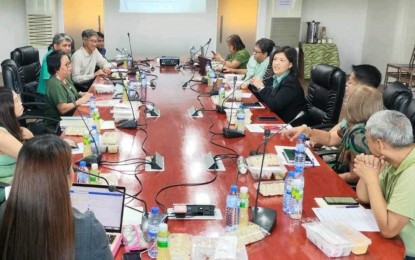
DIGITALIZATION. The Department of Agrarian Reform (DAR) has taken a step towards initiating its digitalization to enhance the timely and swift delivery of its programs and services to agrarian reform beneficiaries. DAR has partnered with the Department of Budget and Management to achieve digitalization goals. (Photo courtesy of DAR)
MANILA – The Department of Agrarian Reform (DAR) is embracing full digitalization in all its operations to enhance the delivery of services to agrarian reform beneficiaries (ARBs).
In a press release Friday, the agency said it is partnering with the Department of Budget and Management- Information and Communications Technology Group to automate its business processes which would ensure that the ARBs receive timely and efficient support.
The collaboration aims to enhance DAR's information technology (IT) capacity and formulate a roadmap for automating its business processes, in line with President Ferdinand R Marcos Jr.’s national directive to digitalize government operations and improve service delivery, DAR Undersecretary Lani De Leon said.
DAR Secretary Conrado Estrella III earlier emphasized the importance of digitalization in achieving the department's land reform priorities.
He said by taking advantage of technology, through inter-agency cooperation, DAR would be able to build a more responsive and effective governance framework that aligns with the broader national digital transformation goals.
“This digital transformation is expected to significantly benefit the ARBs by supporting their pursuit of productive livelihood and sustainable businesses,” he said.
In October last year, ultra-portable data-collecting devices were issued to DAR to accelerate the digitalization of the department and jumpstart the building and operationalization of the Agrarian Information Resource Center.
Estrella said critical to DAR’s mandate is to build an enhanced information network of 2.9 million ARBs, 5,290 agrarian reform beneficiaries organizations, and 2,252 agrarian reform communities and their locations in 4.9 million hectares of awarded agrarian lands, nationwide.
He said the digitalization of the department would solve decades-old problems of mismatching and duplications in the delivery of support services.
Meanwhile, a digitalized information network will gather, verify, validate, and organize data about ARBs, and enable an effective impact assessment to maximize benefits. (PNA)
